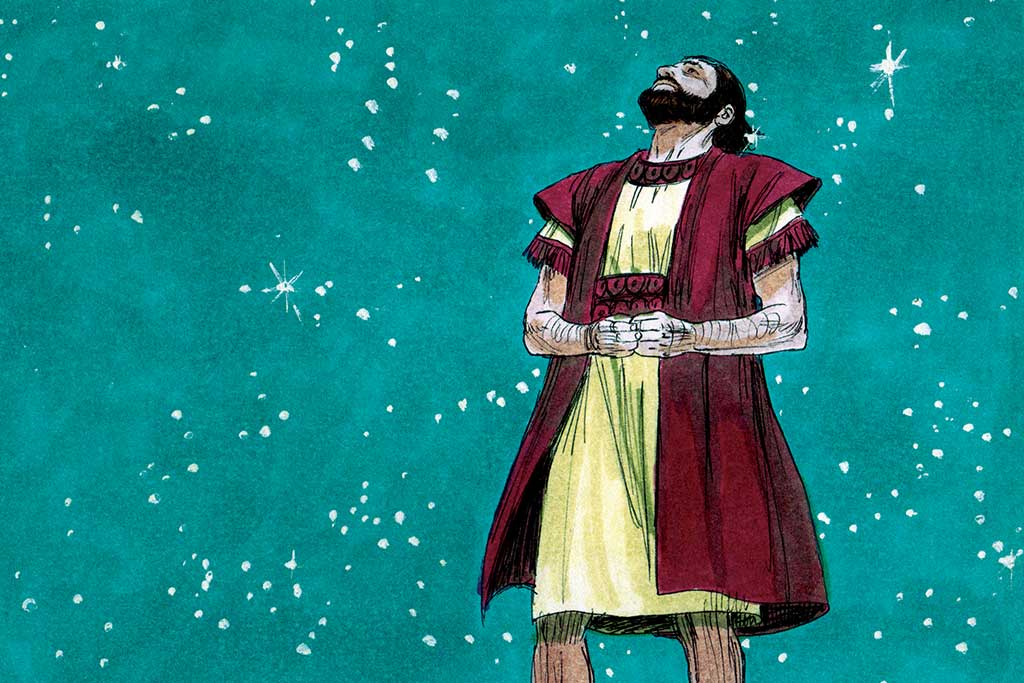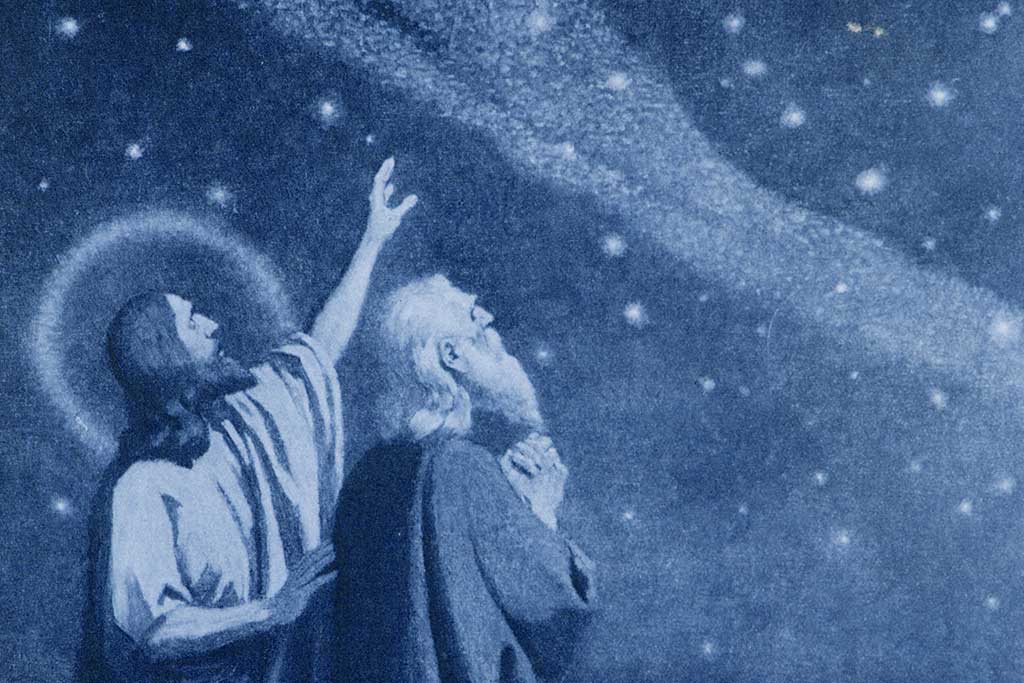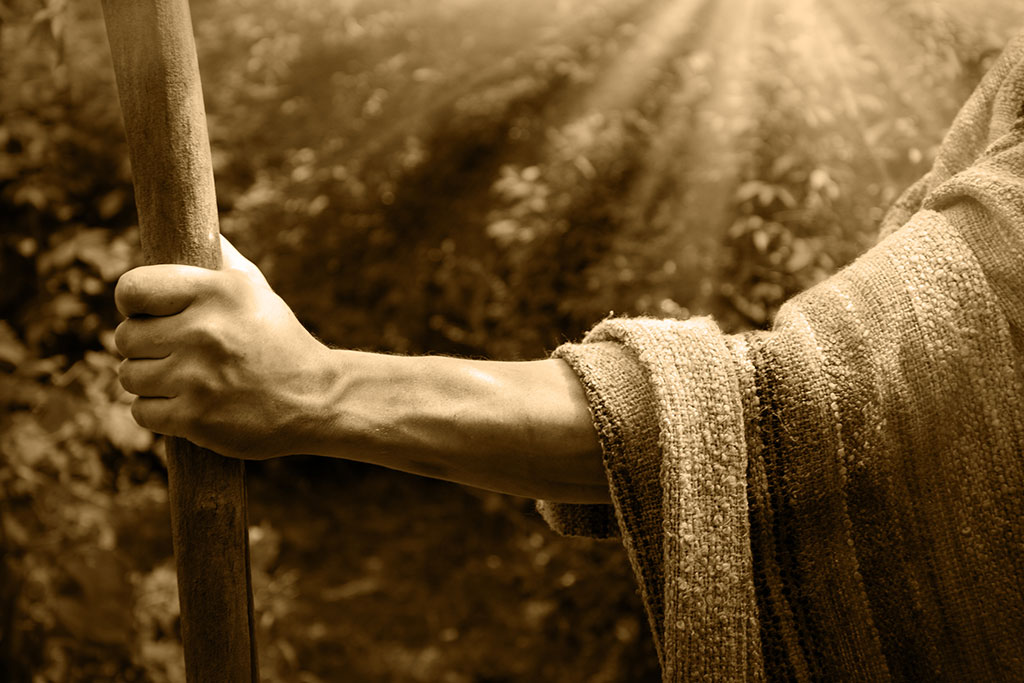
7 Things You May Not Know About Abraham in the Bible
One of the best-known stories about Abraham is that he trusted God enough to be willing to sacrifice his son Isaac if God wanted him to do so. If you know this story, you also know that God provided a ram to replace Isaac on the altar at the last minute. But here are some things you might not know about this patriarch:
1. Abraham was already an old man when God called him to leave his home.
In Sunday school, you probably learned that Abraham was an old man when God promised him a son. But Abraham was an old man before he even began his journey with the one true God.
At 75, Abraham (then known as Abram) was living in Haran when God made himself known and called Abram to leave. Even then—back when people lived a lot longer than they do now—75 was still a long time to settle into your ways. But God invited Abram into a new relationship with his Creator and into a whole new world and life view.
It was 25 years later—when Abram was even older—that he and his wife Sarah were finally gifted with Isaac. All of which is a great reminder that it’s never too late to submit to God’s plan for your life!
2. Abraham lived in Mesopotamia, known by scholars as one of the first civilizations in the world.
Scripture tells us that Abram was a native of Ur, a city located in the region of Mesopotamia. Mesopotamia is credited with being the first known civilization in the world, and according to archaeologists, Ur was a major port city and urban center located on the Persian Gulf.
It was from this seaside city that God called Abram. Having spent his life in a bustling city at the edge of the water, Abram must have found a nomad’s life a big transition.
3. Abram was raised by idol-worshiping parents.
Abram may have been called from city life to remove him from temptations at home. Joshua 24:2 tells us that Abram’s father was a worshiper of idols, which likely means that idol worship was familiar to Abram as well. Leaving behind his father’s house meant leaving behind everything that was familiar, including his religion. This new God, Yahweh, must have seemed very mysterious because he chose to communicate directly with Abram, while the false idols of Abram’s youth were understood to be distant gods who did not personally connect. This difference may have been one of the deciding factors in Abram’s choice to follow God’s leading.
4. Abraham’s lies about Sarah being his sister weren’t exactly lies.
Every marriage is full of mistakes as two people become one, but Abraham made some big mistakes—and didn’t seem to learn from them! While traveling, Abraham told two different kings that his wife, Sarah, was actually his sister so that he would not be harmed. (Talk about being in the doghouse!) Fortunately, both kings discovered the truth and returned Sarah to her husband.
But was Abraham actually lying? In Genesis 20:12, after being found out, Abram explained to King Abimelek that Sarah was the daughter of his father, but not of his mother. Is this problematic? Not necessarily. Mosaic laws regarding marriage among family members wouldn’t be written for another 500 years. In addition, in the Bible words like “sister” and “brother” were used loosely and could refer to a more distant relative as well as a true sibling.
5. Abraham was the tenth-generation descendant of Noah.
In Noah’s time, every other family was wiped out by the flood, which means that every human on earth is a descendant of Noah and his family. Abraham was obviously no exception. Noah had three sons, Shem, Ham, and Japheth. Abraham was in the line of Shem and was a tenth-generation descendant of Noah. Three generations later, Abraham’s grandson Jacob and his wives had twelve sons who became the heads of the twelve tribes of Israel.
6. Abraham helped usher in a promised nation and promised land, but all he ever owned was a burial site.
In God’s first promise to Abram, God told him to leave his father’s household to travel to a new land. Abraham was a great example of faith as he ventured off in obedience to God, yet he never experienced the fulfillment of this promise in his lifetime. In fact, Abraham lived his life as a nomad, constantly traveling from place to place. The only land he personally owned was a burial site—a cave in a field Abraham purchased from the Hittites so he could bury Sarah when she died. This burial site served as a representation of the promised land that Joshua would someday conquer.
7. Isaac and Ishmael had six half-brothers.
After Sarah died at the age of 127, Abraham took another wife, Keturah, and together they had six sons. Their names were Zimran, Jokshan, Medan, Midian, Ishbak, and Shuah. (Genesis 25:1–2). When Abraham died, Isaac and Ishmael buried their father with Sarah.
■
Did you learn anything new? Had you known about Abraham’s six sons with Keturah, or had you only heard of Isaac and Ishmael? Abraham left a bustling seaside home to follow God into a nomadic life in the desert. Has God ever called you out of one thing to follow him into something entirely different?
By Karen Scalf Bouchard, a Freelance Writer at Biblica. Karen Scalf Bouchard is a frequent speaker at church, corporate and community events, and is the author of more than a dozen books including Just Hand Over the Chocolate and No One Will Get Hurt and The Chocolate Diaries: Secrets for a Sweeter Journey on the Rocky Road of Life. In print or on stage, Karen is passionate about helping people engage more fully with God’s presence, His principles, and His plan for our lives.

Biblica
Biblica is a global Bible ministry, releasing the world’s most widely read Scriptures for maximum Gospel impact. Now in its third century of mission, Biblica continues to produce relevant and reliable Scripture translations and innovative resources that invite millions of people to discover the love of Jesus Christ.
Learn More






Great information to know about.
Great God
Loved this information
I woke up out of a sleep; with this name on my mind. While as I knew this was a biblical name; I could not place the story. I am currently facing many transitional periods in my life; really seems like all at once. The content of this message resonates with me deeply. Thank you!
I hope to see it. thank you very much.
Thank you Karen for writing this piece on Abraham. I am a new believer and the information you shared about Abraham is informative. Thank you!